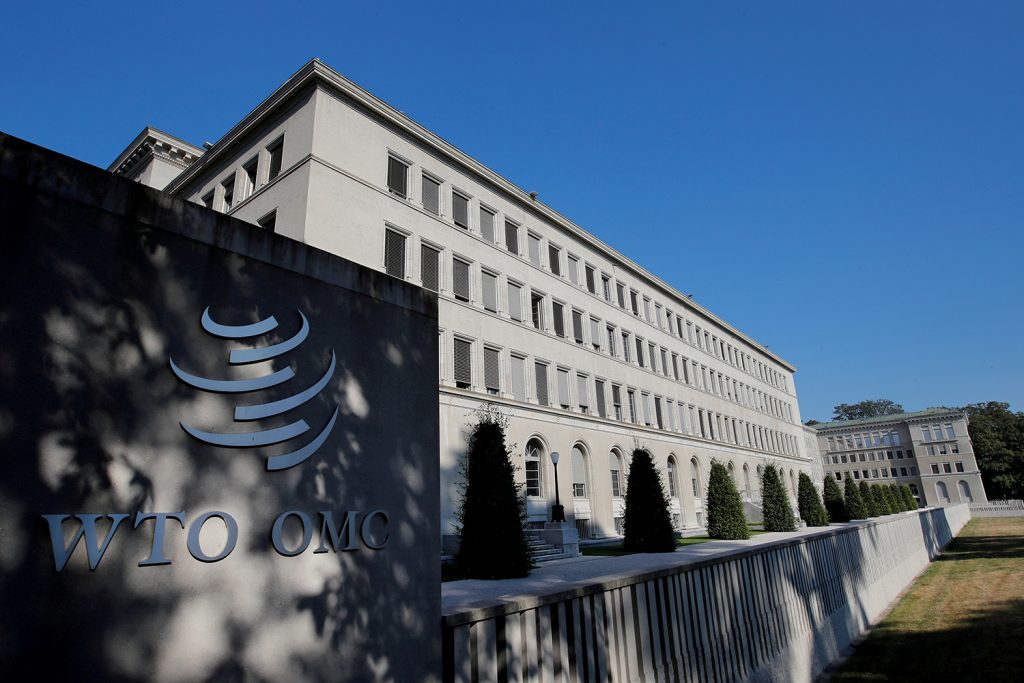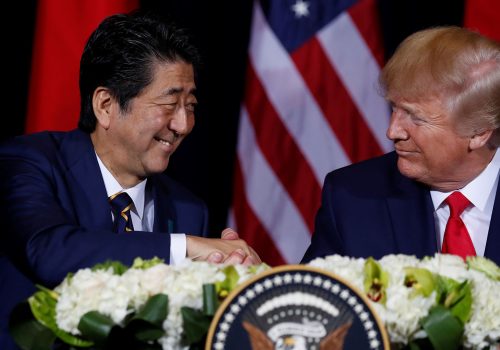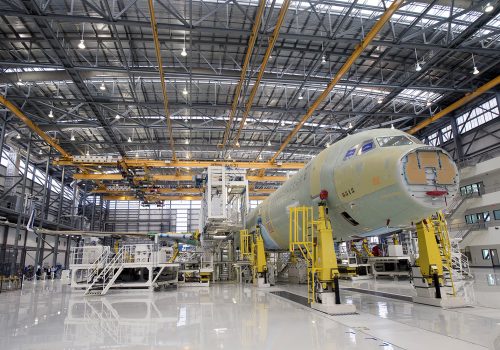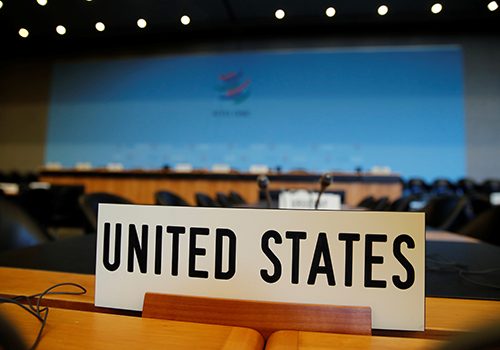The World Trade Organization (WTO) is facing perhaps its stiffest challenges yet. The United States has spent the last two years blocking appointments to vacancies on the WTO Appellate Body (AB), which will most likely cease to function after December 10 due to lack of a necessary quorum. Furthermore, Washington has reportedly threatened to block the WTO 2020-21 biennial budget, scheduled to be approved by all members before the end of this year. Beyond December, the WTO will have to deal with intensifying pressure to undertake radical reform, without which it could slide further into irrelevance in a new world trade environment fragmented by a growing number of regional and bilateral trade agreements.
Suspension of the Appellate Body
The Appellate Body has the final authority to review appeals made by WTO members following a report by the Dispute Settlement Panel, which adjudicates trade complaints among members. The appellate report is then adopted by the Dispute Settlement Body, made up by the entire WTO membership. If neither the complainant nor the respondent in a dispute appeals the Panel report, it is simply adopted by the Dispute Settlement Body.
The Appellate Body has seven members with three constituting the required quorum to make decisions on cases. In the past two years, the United States has refused to approve appointments of members to fill vacancies—a process which requires unanimous agreement among WTO members. By December 10, two members will finish their terms, thus leaving Chinese professor Hong Zhao as the only member left. Without a quorum, the Appellate Body cannot function—especially in taking on new cases (thirteen are pending); cases already reviewed but not yet decided can still be processed if both retiring AB members can continue working on those cases (an arrangement Washington has also objected to). In any event, the dispute settlement system—arguably the crown jewel of the WTO—will be undermined.
To some extent, arbitration of disputes can still take place without the Appellate Body. If parties to a dispute do not appeal a Panel report, it can be adopted by the Dispute Settlement Body. If a party appeals and the Appellate Body does not function, however, there would be no resolution of the trade dispute—risking unilateral measures and countermeasures. To address that risk, the European Union and Canada agreed in July 2019 to set up a “shadow” appellate group, made up of former Appellate Body members, in a plurilateral arrangement (involving several but not all 164 WTO members). In October, Norway joined the group, raising the prospect of more members joining. This plurilateral approach is seen as providing some structure to the ad hoc arbitrations of issues and with the procedures agreed to by disputing members—as provided for under Article 25 of the WTO Dispute Settlement Understanding (DSU). On balance, such ad hoc arbitrations are clearly inferior to the WTO dispute settlement system which is binding and applicable to the entire membership.
US threatens to block WTO budget
The EU effort to develop a “shadow” appellate process on a plurilateral basis seems to have irritated the US administration. According to the Financial Times, the United States has threatened to withhold approval of the WTO 2020-21 budget—arguing that WTO resources are being used for an alternative appellate process. Without a budget, the WTO could continue to operate until April 2020, when its surplus fund reportedly runs out.
Then on November 26, the United States reportedly offered to approve the WTO budget of $197.6 million for 2020 only (not the usual two years) with very stringent conditions designed to hobble the work of the Appellate Body. The conditions include: (i) no more than 100,000 Swiss francs to be paid to AB members (a 87 percent reduction from what Washington had complained as generous payment for part-time assignments); (ii) spending by the AB operating fund also to be limited to 100,000 Swiss francs (a 95 percent reduction); and (iii) only the WTO secretariat may provide funding—out of its own budget—to any DSU Article 25 arbitrations.
An agreement finalized by the WTO Secretariat and the United States reflecting those points was discussed at the WTO Committee on Budget, Finance, and Administration (CBFA) meeting on November 27, but no consensus was reached. Nevertheless, it is expected that an agreement essentially along those lines will be struck at the General Council meeting on December 9-11 to meet the yearend deadline.
Beyond December
If it survives the budgetary battle, the WTO will have to move in earnest to address the US complaints about the Appellate Body. The EU’s November 2018 reform proposal, supported by eleven other countries, has been rejected by Washington for “failing to address its concerns.” Conceivably, there can be compromises on specific measures to ensure that the AB operates strictly within the Dispute Settlement Understanding; compensation for AB members is reduced; the AB treats domestic laws of member countries as facts and not offer opinions; and AB decisions do not cumulatively form a body of case laws going beyond what the members have agreed. However, it is very difficult to deal with the diminishing tolerance the United States has for AB rulings unfavorable to itself.
More importantly, the fundamental challenge to the WTO is to maintain a level playing field involving China’s state-led economy. As concluded by the US Trade Representative in his 2017 Report to Congress: “The US erred in supporting China’s entry into the WTO…on terms that have proven to be ineffective in securing China’s embrace of an open, market oriented trade system….It is now clear that the WTO rules are not sufficient to constrain China’s market distorting behavior.” So far, few ideas have been put forward to address this fundamental problem.
In short, as outgoing EU Trade Commissioner Cecilia Malmstrom observed, “there needs to be a thorough and quite radical reform…if nothing happens in the coming years (the WTO) will be more and more weakened and it will become irrelevant.” For the global economy, the stakes are high, but the odds in favor of radical WTO reform are long.
Hung Tran is a nonresident senior fellow at the Atlantic Council’s Global Business and Economics Program and a former executive managing director at the Institute of International Finance.
Further reading
Image: The World Trade Organization (WTO) headquarters are pictured in Geneva, Switzerland, July 26, 2018. REUTERS/Denis Balibouse/File Photo



